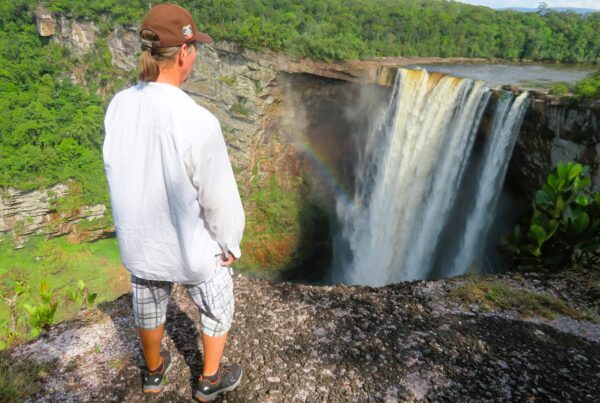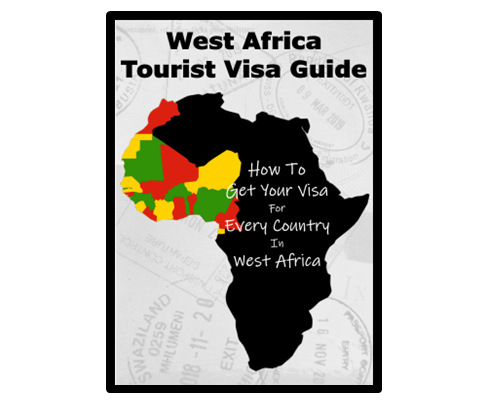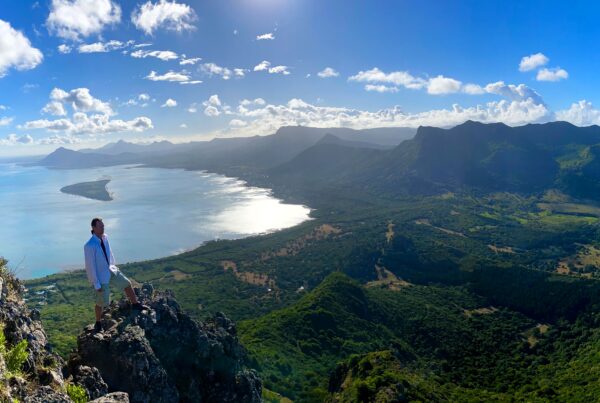“Equatorial Guinea is one of the weirdest countries on earth—and being extorted from arrival to departure wasn’t fun—but we learned valuable intel for bribing African police.”
Blatant police extortion at roadblocks or checkpoints is common in Africa.
In West Africa, the police in Guinea are especially brazen, corrupt douche bags. My strategy to avoid getting my passport taken at police roadblocks was to show a photo copy and refuse—with a smile—to hand over the real thing. It worked several times.
This strategy failed me in Equatorial Guinea when I took a shared taxi from Kogo to Mbini—only a one-hour, eighty-four-kilometer drive—and ran a gauntlet of four police checkpoints.
At the first roadblock an old, weak, out-of-uniform policeman with bloodshot eyes came to my window and asked for my “documentos.” After I gave him a copy, he insisted on seeing my real passport.
I beat him to the punch and said, “you can’t take my passport.”
He said “no, no, just look.” So, I held my passport up through the window for him to see, but I didn’t let him take it. He read my data, looked at my entry stamp, and asked my profession.
“Engineer.”
Yes, you’re right, Kim, I’m not an engineer. But the word engineer is pretty universal, and most immigration staff and police understand engineer. I started saying engineer because nobody understood rocket scientist.
The last thing I want to do is tell them my real profession; I’m masquerading as a travel blogger. Any profession involving writing—journalist, reporter, writer—immediately raises huge, red flags. Especially in dictatorships with a stranglehold on power.
“OK, esta bien.” As our taxi drove away he asked me a very telling question.
“You no jurnalisto?”
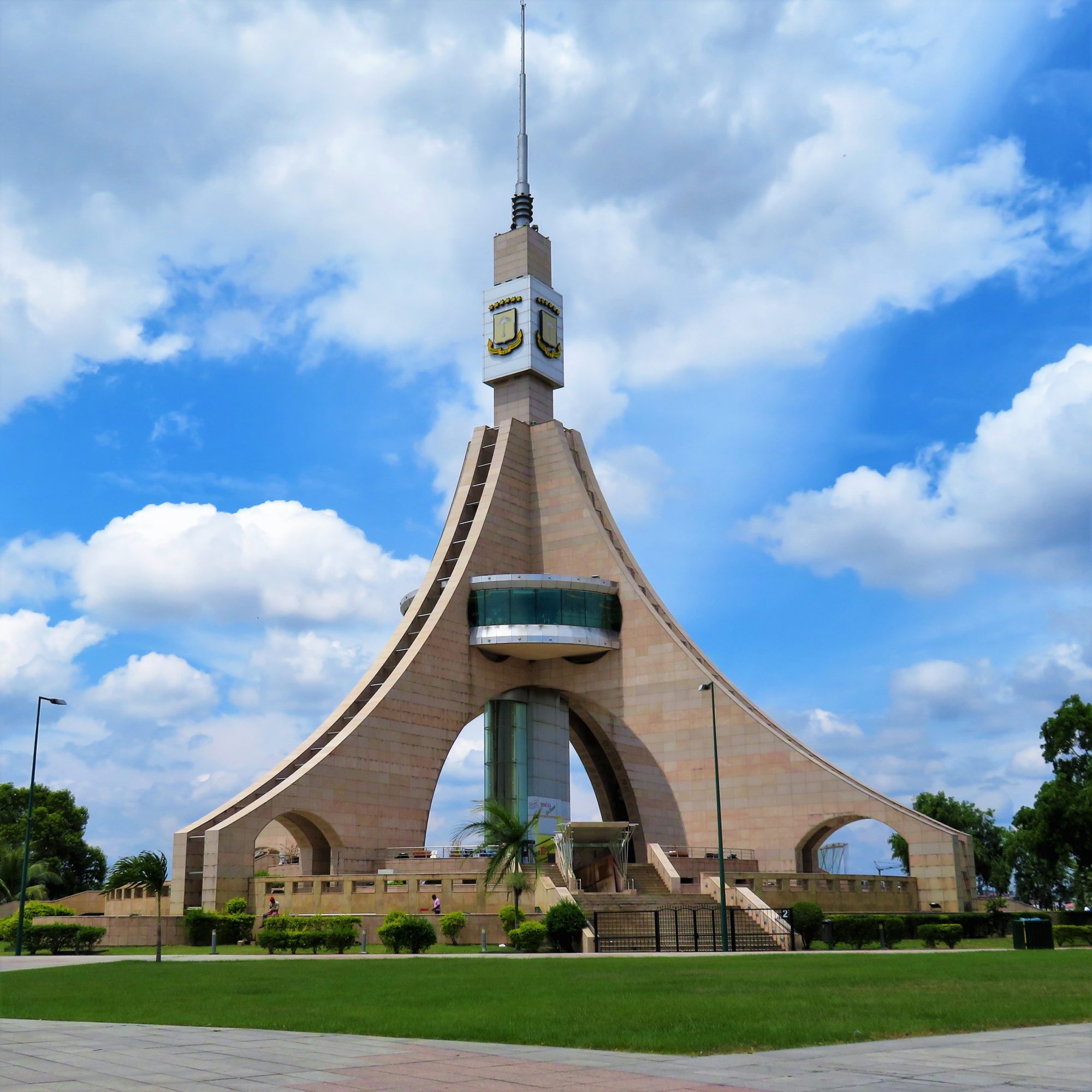
Ten minutes down the road we came to the second checkpoint. A young, studly policeman wearing camouflage fatigues came to my window. My “look but don’t touch” strategy didn’t fly, and the police goon was pissed off when I wouldn’t let go of my passport. He ordered me out of the taxi and sent me to the principal’s office.
Yes, Sis, luckily I have a lot of experience in the principal’s office.
The young stud told me to sit down on the porch and poked his head into the house and called the boss. A small, short “jefe” came out wearing a tank top and gym shorts, most likely straight from a nap. I stood up when he entered and started kissing ass. Just a little.
Luckily jefe was sympathetic. When the young stud left the porch to raise the barrier, I cozied up to jefe and showed him my passport again, and I even handed it to him. But he didn’t take it, he just said “Fanta, Fanta.” I didn’t understand what he was saying.
The taxi driver interpreted for me.
“He wants Fanta soda.”
Deal! I gave him a one-thousand CFA note (US$1.70), shook his hand, and headed for the taxi.
If hell really exists, Kim, I’ll be speeding down the Highway To Hell for much worse than petty bribery.
As I walked past the young stud I flashed my pearly-white, porcelain crowns and gave him my best “fuck you very much” wink.
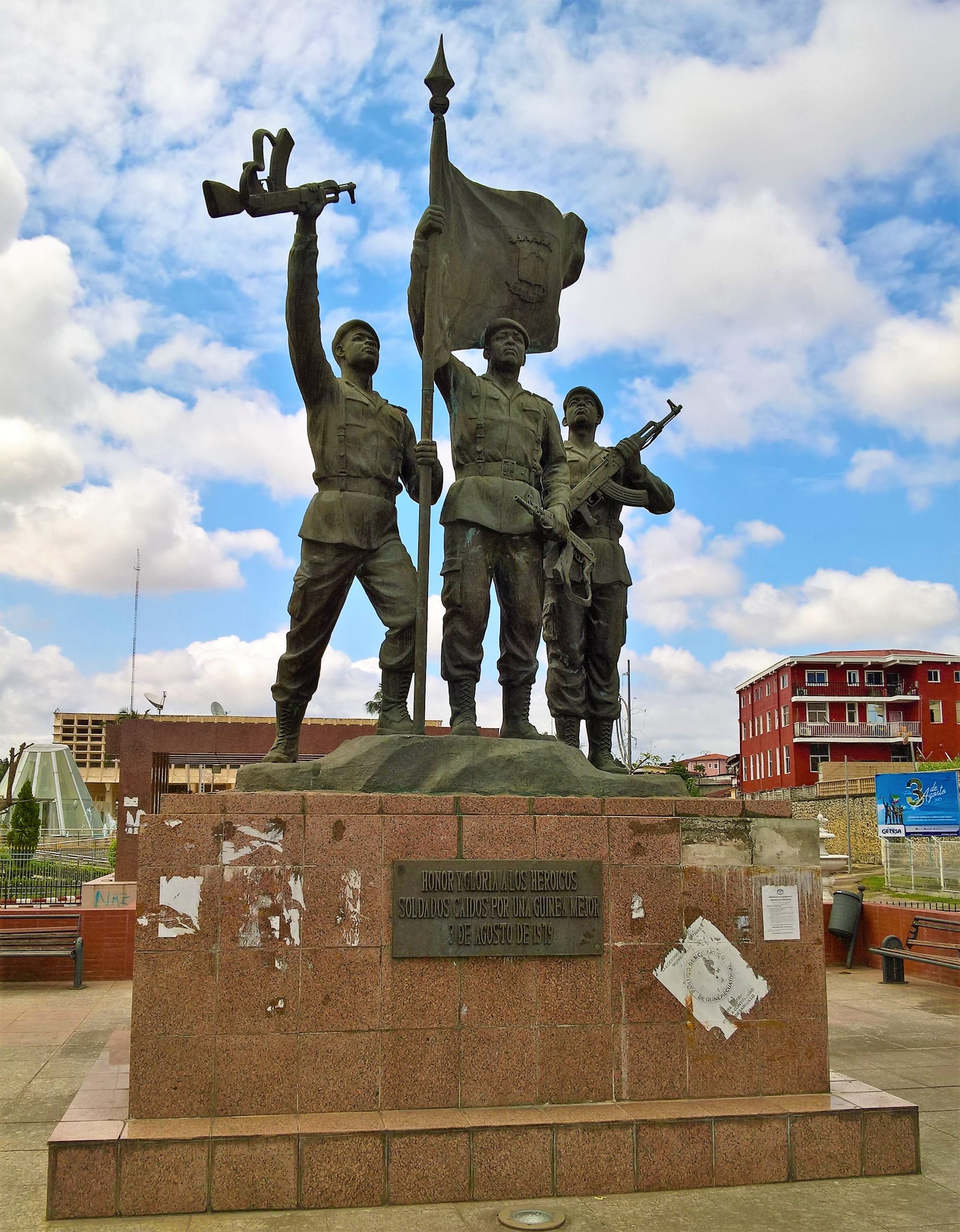
My heart was pounding as we drove away, and I was full of adrenaline. I was so relieved to escape police detention with only a two-dollar hit that I cracked open a leftover can of beer to celebrate. Or medicate.
I felt guilty drinking alone, so I offered to buy beer for the driver and passenger. He immediately pulled over and I bought beers at a little, village bar.
“I hear ya, Sis, normally it’s not a good idea to feed beers to your taxi driver in route.”
But Equatorial Guinea is far from normal. And the money I spent for beer turned out to be a great investment.
The driver chugged his two beers in less than ten minutes. We drove up to the third checkpoint, but the police were preoccupied and let us pass before they noticed the pony-tailed, white man in the back seat.
At the fourth and final police fleecing point, just outside Mbini, my “look but don’t touch” strategy went nowhere. Again. I had another brief tug-of-war with the police goon.
“No problema, el es mi amigo.” The driver told me this policeman was his friend.
I let go of my passport. The driver assured me that this jefe wouldn’t extort me for my passport.
He was wrong.

But in the principal’s office my taxi driver morphed into my defense attorney.
“Objection, your honor. My client is merely a backpacker on his way to Cameroon.”
But the judge was smooth as silk, well versed in the art of extortion.
“Objection overruled! Your client has clearly broken every rule in the book.”
He whipped out his classic flip-phone and dialed up God.
But at that moment, God was in my corner.
Miraculously, a military bigwig drove up to the checkpoint, and the douche bag judge went out to salute him.
A slender, sympathetic-looking, military big dog in blue-gray camo fatigues got out and walked over to the principal’s office.
The douche bag judge pointed to all my African visas and kept saying, “no documentos … trabajo.”
I spoke just enough Spanish to satisfy the big dog, “solo mi dinero, no trabajo.” He took one more look at all my entry stamps then gave back my passport. I looked him in the eye and shook his hand firmly.
Four checkpoints, two shake-downs, two dollars lost, and one passport fumble (lost possession) in only eighty-four kilometers (fifty-two miles). Ugh. It was time for another beer.
Losing only two dollars was a win, Sis, but I lost my appetite for this stressful game.
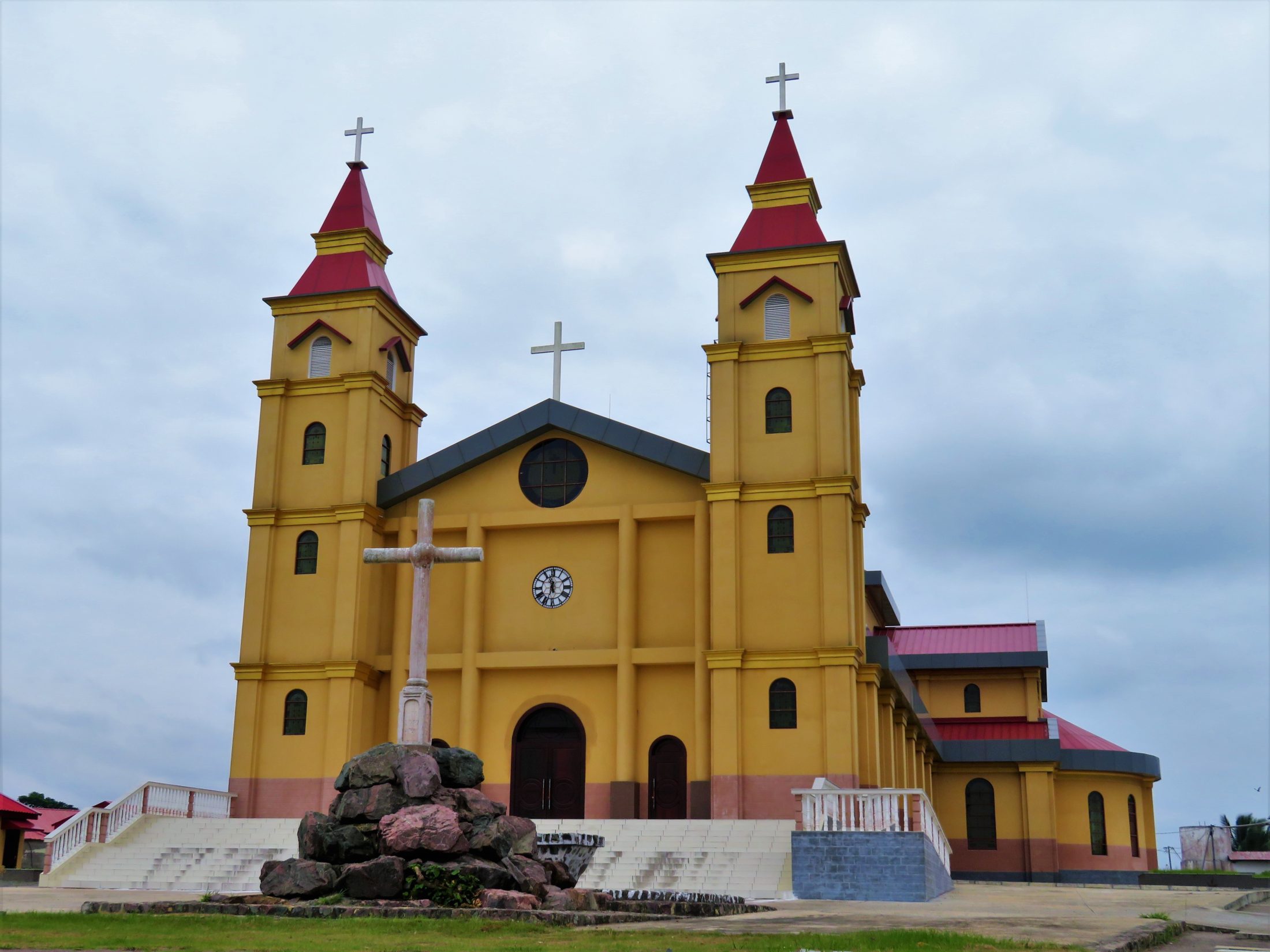
Since my “look but don’t touch” strategy failed miserably in Equatorial Guinea, we need to revise our technique for fighting off corrupt police. This new strategy is most useful in Africa, but it can also be used in Uzbekistan, Eastern Europe, and South America.
“Our new motto is make copies, make change, and make friends.”
Make photo copies of your passport to give police, including your visa and entry stamp for that country. This is your first line of defense for keeping possession of your passport. Except at border crossings, don’t give anyone your passport unless it’s absolutely necessary.
Make change and get small bills to “buy drinks” which is a common metaphor for “give us money.” Several times I paid too much just because I didn’t have any small denomination bills. But if you’re the type of person that says, “I’m not paying anything, ever,” fair enough. Good luck!
And most importantly, make friends with taxi drivers, hotel staff, fellow passengers, and even the police. You never know who’s going to go to bat for you and help you out of a jam.




